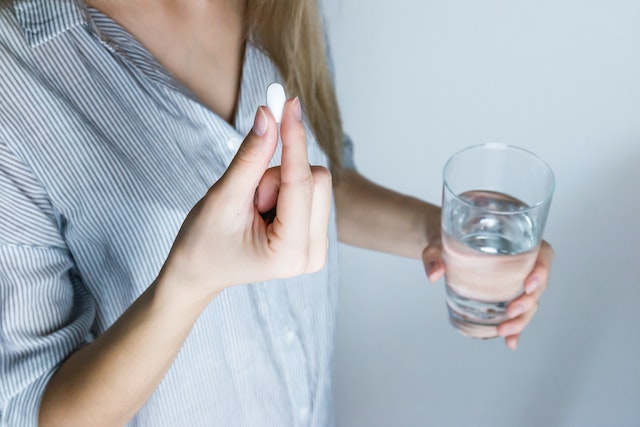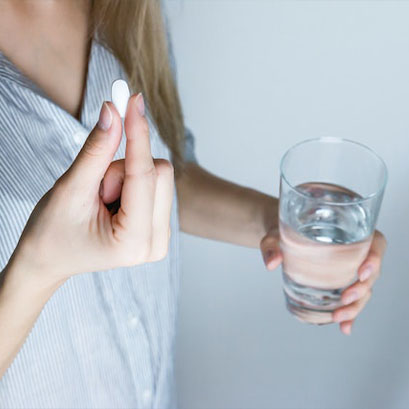
What Are Common Symptoms of Lexapro Withdrawal, And How To Cope?
Lexapro withdrawal can be an uncomfortable and even dangerous process. It is important to understand the signs and symptoms of withdrawal and the best methods for managing them. In this blog post, we’ll discuss the common physical and psychological symptoms of Lexapro withdrawal and how to cope with them. We will also discuss the importance of professional detox for overcoming addiction. With the right resources and support, you can manage your withdrawal symptoms and reach a healthier, happier life.
Table of Contents:
What is Lexapro?
Lexapro (escitalopram) is a commonly prescribed medication used to treat depression, anxiety, and other mental health disorders. Lexapro is a selective serotonin reuptake inhibitor (SSRI), which means it increases the amount of serotonin in the brain, a neurotransmitter known to regulate mood and emotions.
While this medication can be an effective treatment for many people, it can also be addictive. When abused, people can experience severe withdrawal symptoms after trying to stop using it. Understanding these withdrawal symptoms and how to cope with them is important.
Physical symptoms
When someone stops taking Lexapro, they can experience physical symptoms of withdrawal, such as headaches, nausea, and vomiting.

Other physical symptoms include dizziness, insomnia, tremors, and muscle aches. People may also experience heightened sensitivity to light or sound in some cases. People who abruptly stop taking Lexapro may also experience more severe symptoms, such as seizures or delirium. These physical symptoms can vary in intensity and duration from person to person. It is also important to know that some of these symptoms may last several weeks after stopping Lexapro. It is important to note any physical symptoms that arise after stopping the medication and to seek medical attention if necessary.
Psychological symptoms
Psychological symptoms of Lexapro withdrawal can be uncomfortable and difficult to cope with. Common psychological symptoms of Lexapro withdrawal include extreme mood swings, depression, anxiety, irritability, trouble sleeping, and changes in concentration and cognition.
In some cases, Lexapro may also cause suicidal thoughts. As these symptoms can be very severe and interfere with your daily life, it is important to seek medical attention if you are experiencing any of them. Additionally, it is important to understand that the severity and duration of psychological symptoms vary from person to person. Some people may find that their symptoms last for weeks or months, while others may only experience them for a few days or weeks.

Overcoming addiction
An imbalance in brain chemicals causes these psychological symptoms, and it can take time for the body to return to its pre-withdrawal balance.

Because of this, it is important to be patient and practice self-care while the body is in recovery. This could mean taking breaks during the day, exercising regularly, getting enough sleep, practicing mindfulness, or speaking to a therapist if needed.
While addiction to Lexapro can be incredibly difficult to manage, there are ways to safely and effectively break your addiction. The first step is to recognize the signs of dependency and withdrawal. Once you have identified your physical and psychological symptoms, it is important to seek professional help.
With proper support from a healthcare provider, you can develop a treatment plan to safely and successfully manage your addiction. Your care team may use a combination of methods to help you detox, include tapering off your dosage, changing medications, or combining therapies such as cognitive-behavioral therapy (CBT) or group counseling. Working with your healthcare provider can ensure you choose the best course of action.
Professional detox for an effective, lasting recovery
In the long run, the most effective way of managing addiction is through professional detox. Detoxing from Lexapro can be dangerous and should only be done under close medical supervision. During a supervised detox, your healthcare provider will monitor your physical and mental health as you gradually reduce your medication dosage until completely weaned off.
Your team may also work with you to make lifestyle changes to help you recover from your addiction. These include avoiding triggers, participating in support groups, getting adequate sleep and exercise, eating a healthy diet, and limiting alcohol and other substances. Additionally, therapy or counseling can help you learn coping skills and develop strategies for better managing anxiety, depression, and other mental health issues.
Last words
Lexapro withdrawal can be challenging, but managing and overcoming your addiction with the right support is possible. If you or someone you know is struggling with an addiction to Lexapro, seek professional help immediately.
Professional detox offers medical supervision and tailored treatment plans to address each person’s unique needs. A professional in-home detox also offers a safe, comfortable environment for individuals to begin their recovery journey.
In-Home Detox services like Elite Home Detox allow patients to undergo supervised detox in the comfort of their homes. These services are tailored specifically to your needs and come with medication management protocols so you can remain healthy throughout the process. For some people, these services may make all the difference in a successful recovery.
Detox Safely At Home With Elite Home Detox
With Elite Home Detox, you will be assigned a care coordinator to help keep you on-track to support your recovery. Once a custom rehabilitation plan has been developed between you and your expert team, one of our team members will come to your home and stay with you as you detox discreetly in the comfort of your own home.
Once detox is complete, we will work with you to create a practical and effective aftercare plan complete with ongoing recovery support. We can also help counsel friends and family on how they can best support you in taking this next step. We’re here and ready to help. Reach out to us for a custom consultation today!


